The integration of AI and blockchain technology is a transformative trend in 2025, combining AI’s data processing and predictive capabilities with blockchain’s decentralized, secure, and transparent architecture. This synergy is unlocking new applications across industries, enhancing efficiency, security, and trust. Overview of the latest developments in AI and blockchain integration, based on recent insights:
Decentralized AI Model Execution
Overview: Blockchain platforms are enabling decentralized execution of AI models, reducing reliance on centralized cloud providers like AWS or Google Cloud. This ensures data privacy, reduces costs, and enhances scalability.
Example: Ritual Networks, a decentralized AI platform, has demonstrated 85% cost efficiency in running large language models (LLMs) compared to centralized providers. Their blockchain-based infrastructure allows AI models to operate on a distributed network, ensuring transparency and immutability of computations.
Impact: This approach democratizes access to AI, allowing smaller organizations to leverage advanced models without prohibitive costs.
AI-Powered Smart Contracts:
- Overview: AI is being integrated into smart contracts to enable dynamic decision-making and automation. Machine learning models embedded in smart contracts can analyze real-time data and execute actions based on predictive insights.
- Example: Projects like Fetch.ai use AI agents on blockchain to automate tasks such as supply chain optimization or energy grid management. These agents operate autonomously, with blockchain ensuring tamper-proof execution.
- Impact: This enhances the functionality of smart contracts, making them adaptive to complex scenarios like fraud detection or dynamic pricing in DeFi.
Fraud Detection and Security:
Overview: AI algorithms, combined with blockchain’s immutable ledger, are improving security in decentralized systems. AI can detect anomalies or suspicious patterns in blockchain transactions in real time.
Example: Webacy’s AI-powered wallet address poisoning detection tool achieves a 97% success rate in identifying malicious blockchain addresses. Similarly, Trugard’s blockchain-agnostic platform uses AI to monitor on-chain activities for scams and fraud.
Impact: These tools enhance trust in DeFi and Web3 ecosystems, reducing risks for users and institutions..
Data Marketplaces and Privacy:
- Overview: Blockchain-based data marketplaces, powered by AI, allow secure data sharing while preserving privacy. Zero-knowledge proofs (zk-SNARKs) and AI-driven encryption ensure data remains confidential during transactions.
- Example: Ocean Protocol facilitates decentralized data marketplaces where AI models can access and analyze data without compromising user privacy. Users are rewarded with tokens for sharing data, creating an incentivized ecosystem.
- Impact: This enables industries like healthcare and finance to leverage AI for insights while complying with data privacy regulations like GDPR.
AI-Driven Decentralized Finance (DeFi):
- Overview: AI is enhancing DeFi protocols by optimizing yield farming, liquidity provision, and risk management. Predictive models analyze market trends to improve investment strategies.
- Example: Numerai’s blockchain-based hedge fund uses AI to crowdsource predictive models from data scientists, with blockchain ensuring transparent reward distribution. Platforms like Yearn Finance integrate AI to automate yield optimization.
- Impact: This increases DeFi efficiency, attracting institutional players and boosting TVL (total value locked) in DeFi protocols.
Autonomous AI Agents:
- Overview: Blockchain enables AI agents to operate autonomously in decentralized ecosystems, executing tasks like trading, governance, or content moderation without centralized control.
- Example: SingularityNET’s AI marketplace allows developers to deploy AI agents on blockchain, enabling applications like decentralized chatbots or autonomous trading bots. These agents use blockchain for secure, verifiable transactions.
- Impact: This fosters trustless automation, reducing reliance on intermediaries and enhancing scalability.
Interoperability for AI-Blockchain Systems:
- Overview: Interoperability protocols like Chainlink’s CCIP enable AI models to access data across multiple blockchains, enhancing cross-chain AI applications.
- Example: Chainlink’s decentralized oracle network feeds real-world data to AI models on blockchain, enabling use cases like weather-based insurance payouts or supply chain forecasting.
- Impact: This bridges isolated blockchain networks, making AI applications more versatile and data-rich.
Emerging Trends and Innovations
- Zero-Knowledge Machine Learning (zkML): Projects like Modulus Labs are integrating zero-knowledge proofs with machine learning to enable verifiable AI computations on blockchain. This ensures AI model outputs are trustworthy without revealing sensitive data, with applications in healthcare and finance.
- Decentralized AI Governance: Blockchain-based DAOs (Decentralized Autonomous Organizations) are using AI to optimize governance processes, such as voting or resource allocation. For example, DeepDAO integrates AI to analyze DAO performance metrics on-chain.
- Web3 AI Applications: In Web3, AI is enhancing user experiences by personalizing decentralized apps (dApps). For instance, AI-driven recommendation systems on blockchain-based social platforms ensure user data remains private.
- Scalability Solutions: Layer 2 solutions like Arbitrum and zkSync are reducing the computational cost of running AI models on blockchain, making it feasible to process large datasets on-chain.
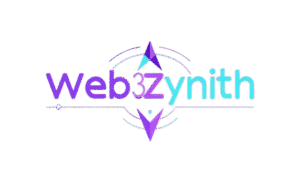







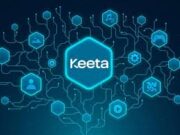


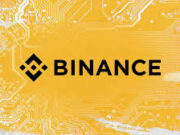
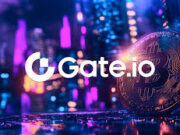
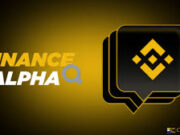


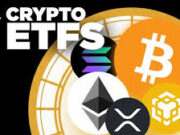
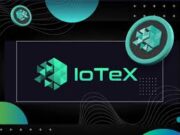


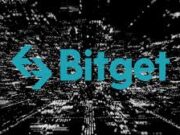


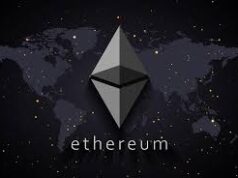
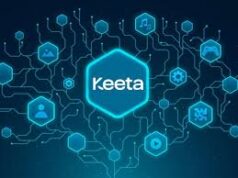



You missed AI-powered oracles! They’re huge for feeding real-time data to smart contracts, like Chainlink’s integration with AI for better DeFi predictions
AI with blockchain feels like a tech headache waiting to happen. We’ll see
Scalability is the real worry here mate. Will it work or fail? That’s an open question for the future to answer